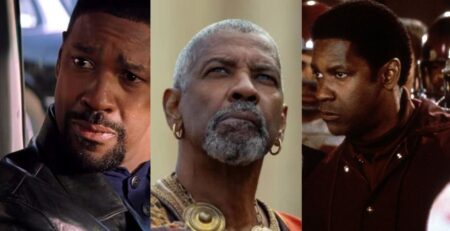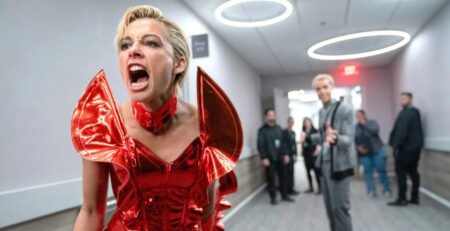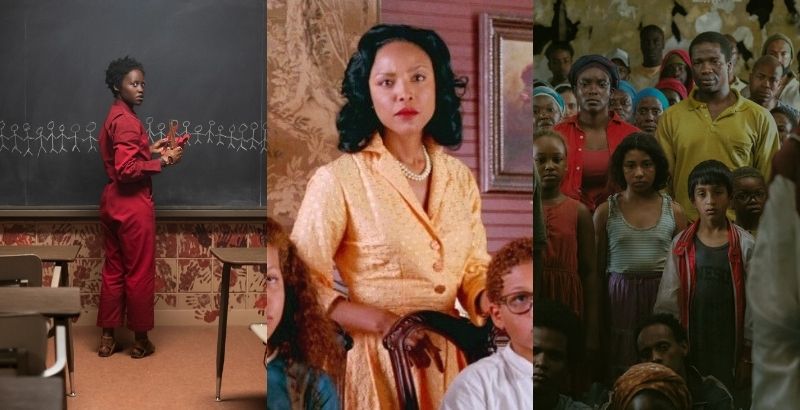
The Horror genre has gained a lot of attention over the past few decades and its popularity continues to grow to this day. The Horror genre taps into the fears of the audience and targets the emotions that are felt as they watch the film. One of the subgenres within horror that has gained notoriety as of late is Black Horror. The Black Horror subgenre includes one or more Black characters at the center of the story. It is often associated with including stories about the Black experience. particularly focusing on racism, trauma, or social issues. The Black characters in this subgenre aren’t just there to be comedic relief, to be the first to die, or to give wisdom to other characters. They are the main focus of the film and are given a compelling story for all audiences to enjoy.
With recent films like Get Out, Us, Candyman, Ma, and Vampires in the Bronx, Black Horror films have quickly made an impact not just in the Horror genre but in the overall world of film as well. With February being Black History Month, some of our contributors chose their favorite Black Horror films and described why they chose those films.
Night of the Living Dead, Dir. George A. Romero

It wasn’t until I watched Romero’s Night of the Living in an undergrad film class that I fully understood and appreciated the Black Horror subgenre. The film follows a group of strangers bunkering in a house and trying to survive the beginning of a zombie apocalypse. What starts as what is now a typical zombie film takes a turn when Ben, played by Duane Jones, takes charge. Ben is the only black character in the film and seeing him take control was a welcoming surprise. In a room full of white people, Ben quickly becomes their only hope to survive. His character never becomes a caricature nor does he ever falls victim to what ever fate a Black character would have had in any other Horror film. This makes it much more devastating when his character, having been the last survivor in the house, is mistaken for a zombie by strangers and is shot. The not-so-subtle imagery in that scene is what left me truly scared well after the lights came on. – Nikko Soto
Get Out, Dir. Jordan Peele
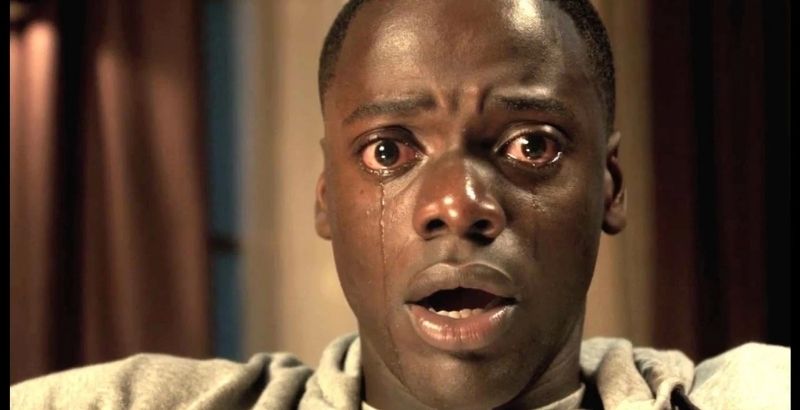
Jordan Peele’s directorial debut Get Out grabbed me from the opening scene and didn’t let up until the finale. It’s perhaps one of the most interesting ideas I’ve ever seen from a horror film, but more than that I appreciate the craftsmanship that went into making the film. From the concept of the Sunken Place to the twist surrounding the Armitages, Get Out manages to perfectly blend social commentary with a slow-burn horror tale. It also cemented Peele as a bonafide horror filmmaker in his own right and was the start of a meteoric career for Daniel Kaluuya. – Collier “CJ” Jennings
Eve’s Bayou, Dir. Kasi Lemmons
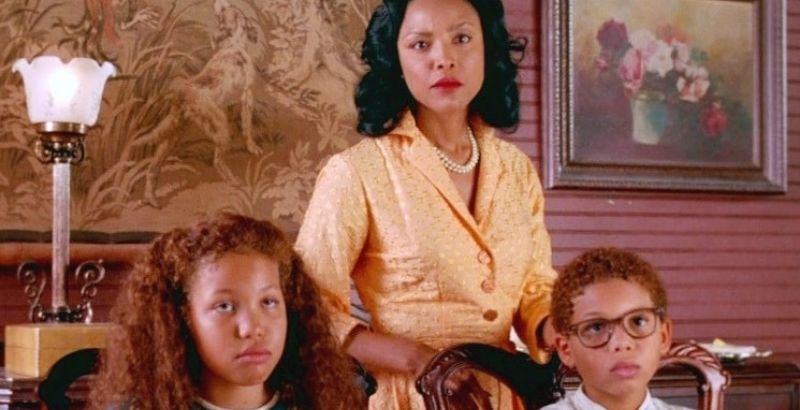
Perhaps the most beloved southern gothic film in American cinema history, Kasi Lemmons’ debut film remains a masterpiece twenty-five years later. Set in 1960’s Louisiana, this incredibly moving period piece features a layered, complicated narrative about family, secrets, having access to power, and consequences. Jurnee Smollett’s (Jurnee Smollet-Bell) stunning performance at only eleven years old remains one of my favorite child actors of all time as this film launched her and fellow costar Meagan Good’s acting careers. With an ambiguous ending that still has audiences debating on the actual truth of the events that served as a catalyst for the downfall of their family, this haunting film stands the test of time with stunning imagery and a definite nod to horror with its inclusion of Southern flair by way of the mysticism that can only come from the South. – Carrie McClain
His House, Dir. Remi Weeks

Horror is a powerful storytelling medium to explore the human experience. His House is an exploration of living in Britain as a refugee, grief, and the guilt people carry as they are forced to flee from war. Focused on a Sudanese story, it’s a haunted house story unlike any I’ve seen before. It not only offers an emotive and eye-opening story but utilizes the best parts of the haunted house subgenre. While the common complaint of haunted house stories is for the tormented family to “just leave,” that isn’t in the case in His House. Here we see an immigrant family forced into a home that is falling apart and because of their status, they can’t leave. As the visions and haunting grow, the family is forced to deal with the grief and guilt they carried with them as they escaped Sudan. – Kate Sánchez
Us, Dir. Jordan Peele

Jordan Peele’s Us, is hands down at the top of my favorite horror films. Although many people did not like that Us did not follow in the footsteps of Get Out in the way of making some kind of direct commentary on race. Instead, as Peele stated, this film is simply a horror movie. In my opinion what makes a horror film great is that it is suspenseful, scary, and thought-provoking. And Us accomplishes just that at the end of the. From the striking visuals, lighting, jumpscares, amazing work from the actors playing dual roles, and the musical score. It all comes together to create an amazing horror film. This movie forever changed the way I listen to Luniz and Michael Marshall’s I Got 5 On It. – LaNeysha Campbell
While only 5 films were include on this list, there are plentiful of Black Horror films that could have easily been chosen. However, these are films that stood out to some of the contributors on this site and demosntrated why they should be celebrated during Black History Month. What films would you have included? Let us know on our social channels: Twitter (@butwhythopc) and Instagram (@butwhythopc).

